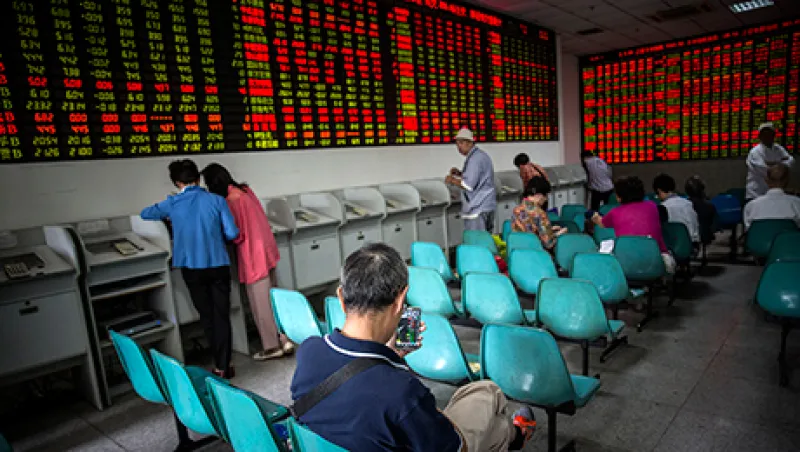How investors interpret recent events in China and incorporate them into their thinking could have a lasting effect on their disposition toward Chinese equities and their ability to participate in the nation’s growth. Investors would be wrong to write off China and lump it into the bin with the other flagging BRIC economies. Arguably, it never belonged in the BRIC camp.
Any attempt to reckon with China’s current economic and financial market malaise has to account for intangible factors such as the country’s diplomatic and economic clout, its ability to translate structural reforms into short-term economic growth and its commitment to opening up its financial markets to greater foreign investment.
First, let’s put the stock market sell-off and fears of an economic slowdown into context. Despite the recent correction, the Shanghai Composite index is still up 42 percent from August 31, 2014, through September 16 of this year, and the government has increased its support for both the financial markets and the economy. What is portrayed as a slowing economy still maintains a reasonable chance of reaching the 6 to 7 percent growth range the government has set, which would put it well ahead of the world’s other major economies.
Second, China benefits from intangible factors that other emerging markets with less political and economic power don’t enjoy. Despite slowing growth, it will likely become the largest economy within the current generation. It is already a top trade partner to most developed and emerging economies. And its currency, the renminbi, is on track to become a global currency used to settle trade transactions and to denominate securities. The country also has a seat at the table in the most consequential diplomatic matters, such as global sanctions regimes, and has attracted global support to its new Asian Infrastructure Investment Bank.
Third, China’s government has recognized the need to encourage greater foreign investment into its securities markets, for policy reasons as well as economic development objectives, and has accelerated efforts to open its markets to global investors. These include the launch of the Shanghai–Hong Kong Stock Connect, expansion of foreign investment quotas and the establishment of free-trade zones. The recent market intervention to stanch the volatility in equities and depreciate the renminbi supported those objectives.
Lastly, even in the short term, Chinese equities could play a valuable diversification role. They have a low correlation (just 0.3) to the S&P 500 index, and China’s domestic markets are less affected by global events, such as U.S. interest rate hikes, than are other emerging economies.
Today, however, foreign investors hold less than 4 percent of Chinese equities even though China has the second-largest market capitalization worldwide and accounts for roughly 17 percent of global GDP. There are good reasons for this disparity, including capital constraints, remaining restrictions on currency convertibility and, most recently, what appeared to the outside world as a calamity in the country’s stock market. But this gap will close over time as markets settle, China grows and it continues to loosen limits on foreign investment and currency convertibility. What remains to be seen is which investors will be first into China’s markets and, hence, which will reap the biggest gains.
Parsing investor psychology is tricky, but there is an evident divergence between the way that investors in Asia view recent events in China and the way that U.S. investors look at them. Perhaps because of proximity, Asia-based investors seem to be putting a higher value on China’s intangible attributes. Indeed, at certain points since the market crested there have been surprising inflows into Chinese equities from regional investors. To meet this demand, regulators in China expanded the renminbi qualified foreign institutional investor quota by nearly $1 billion in August alone. Investors in Australia, Hong Kong, Korea and Singapore account for 88 percent of the total RQFII quota used to buy A shares; the rest goes to European investors.
U.S. investors, however, have either been taking their time trying to understand local China market dynamics or selling the small portion of shares that they owned. Should this short-term reluctance to commit to A shares translate into long-term underweighting of Chinese equities, they may miss the very window of opportunity that they have been awaiting.
Chen Ding is CEO of CSOP Asset Management and chair of the Chinese Asset Management Associationof Hong Kong.






